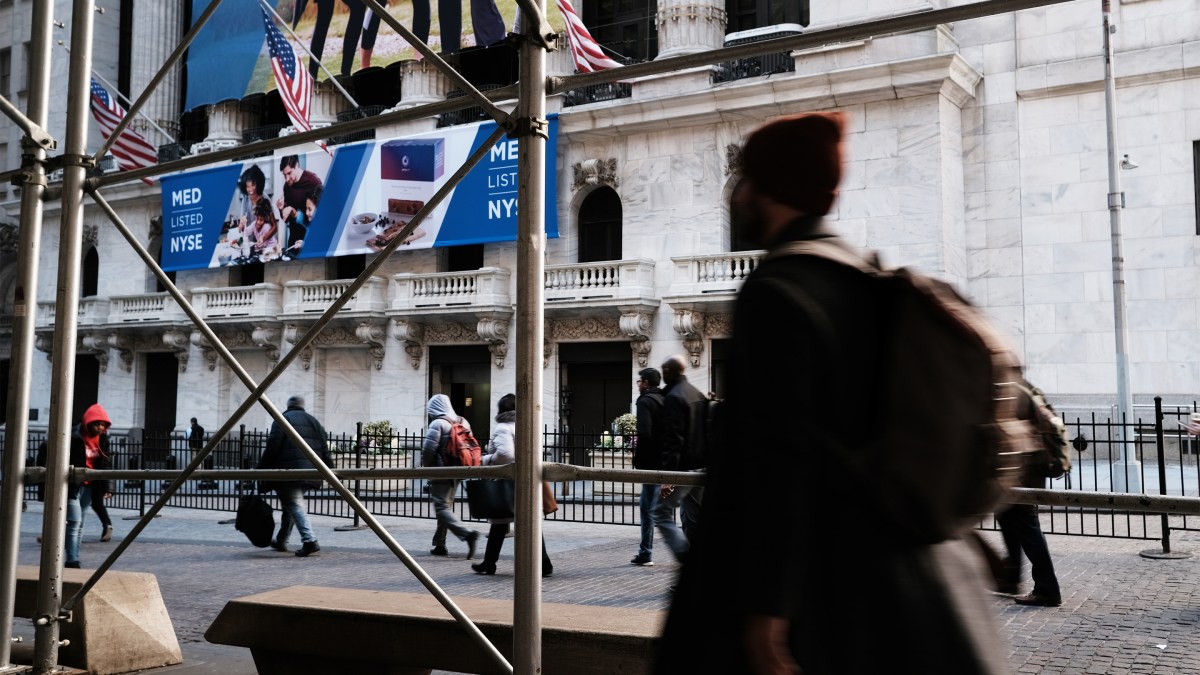
One piece of data that jumps out in the latest Marketplace-Edison Research Poll is a measure of just how precarious many people’s finances are.
We asked people how difficult it would be for them to pay an unexpected expense of $1,000. Almost 60% of those polled said they would have a hard time swinging it.
But this time we added another part to the question: what about an unexpected expense of $250? More than 40% said they would struggle to manage that.
One person who responded to our survey was 66-year-old Thomas Benton in St. Louis. He’s a district manager for a fast-food restaurant, and in the midst of the pandemic his hours went from about 50 a week to 30.
“My financial outlook now is very bleak,” Benton said. He definitely couldn’t pay an unexpected expense of $1,000, and probably not $250 either, he said.
“I couldn’t even get $300 this morning. It’s kinda rough,” Benton said.
He needed that $300 for rent this month. Normally, he might call friends and family to help in an emergency, but they’re in the same boat.
Sarah Sattelmeyer, project director at Pew Charitable Trusts, said even in normal times, many people would struggle to absorb a big, unexpected expense.
“More families are out of work, or living paycheck to paycheck, or are doing work and child care,” she said. “Even small, unexpected expenses can really throw a wrench in families’ balance sheets.”
For a lot of people, COVID-19 is the unexpected expense, with sudden job losses highlighting just how unstable financial stability can be.
“Not only do they not have savings, but they don’t even have income,” said Lissa Johnson, associate director of the Center for Social Development at Washington University. “They don’t have the income even to replenish any savings that they did have.”
In our poll, certain demographic groups seem much more cushioned against this economic shock than others. Twenty-seven percent of white respondents said an unexpected $250 expense would be difficult to cover, compared to 50% of Hispanics and 59% of African Americans, like Thomas Benton.
“Now, I got to use when I get paid next week — I got to get caught up, but this week, it’s kind of hectic,” Benton said.
It’s the kind of situation that creates economic anxiety at any time, and even more during a pandemic.
Related Stories
Which states are reopening?
Many states have started to relax the restrictions put in place in order to slow the spread of COVID-19. Although social-distancing measures still hold virtually everywhere in the country, more than half of states have started to phase out stay-at-home orders and phase in business reopenings. Others, like New York, are on slower timelines.
Is takeout food safe during COVID-19?
The short answer is yes. You can read the long answer, and all the caveats, here.
Is it worth applying for a job right now?
It never hurts to look, but as unemployment reaches levels last seen during the Great Depression and most available jobs are in places that carry risks like the supermarket or warehouses, it isn’t a bad idea to sit tight either, if you can.
You can find answers to more questions here.
As a nonprofit news organization, our future depends on listeners like you who believe in the power of public service journalism.
Your investment in Marketplace helps us remain paywall-free and ensures everyone has access to trustworthy, unbiased news and information, regardless of their ability to pay.
Donate today — in any amount — to become a Marketplace Investor. Now more than ever, your commitment makes a difference.
"many" - Google News
May 06, 2020 at 06:44AM
https://ift.tt/2xHdPOQ
Many lack a financial backstop amid pandemic - Marketplace
"many" - Google News
https://ift.tt/2OYUfnl
https://ift.tt/3f9EULr
No comments:
Post a Comment